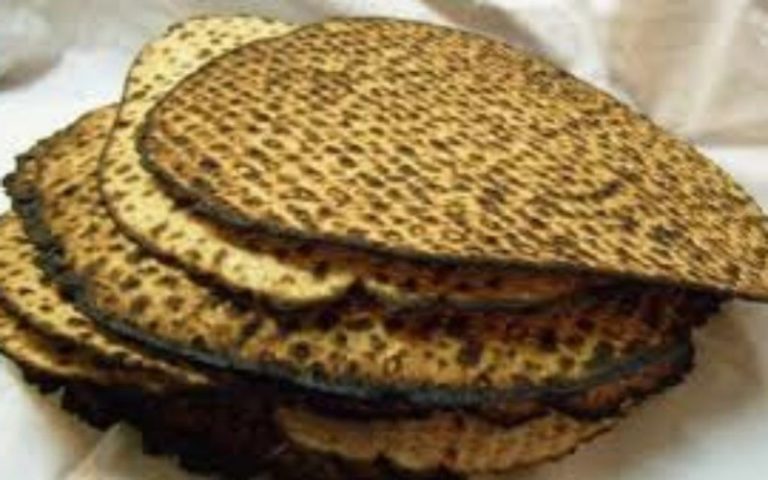By Rabbi Yair Hoffman for 5tjt.com
Warning: The label found above – does not exist. It was created to draw attention to the topic of this article.
Walk into Gourmet Glatt and you will find an entire refrigerator row of just one item – dips. Prominent among these dips, of course, is olive dip. Some prefer the Flaum’s dip, some like the other brands. But regardless, for some reason, olive dips have become ubiquitous at the Shabbos table. But all this dipping brings up a few halachic questions.
The Gemorah (Horios 13b) lists five things that cause one to forget one’s studies:
- Eating from mouse and cat leftovers,
- Eating the heart of an animal (the Afarkasta D’Anya of Rabbi Klonymus Sperber extends this to chickens too),
- if one regularly consumes olives,
- if one drinks leftover bathwater, and
- washing feet one on top of the other.
- A sixth item is listed as a possibility – using one’s clothing as a pillow.
Our focus in this article is upon #3. Before we do that, however, let’s go a bit further. The Gemorah later lists five things that restore one’s studies. One of them is consuming olive oil.
The Mogain Avrohom 170:19 cites this Gemorah as authoritative Halacha. The Aruch HaShulchan 2:5, the HaGaos Rabbi Akiva Eiger (OC 2), Shla, Ben Ish Chai, and Kaf HaChaim mention it as well. This is a powerful array of Poskim.
Why then are so many people eating olives? Should olives not be served? What about the dips? Are there heterim – reasons to allow the masses to ignore this “mandatory avoiding” of Chazal? And how do we give a hechsher on the item without, say, adding a bit of olive oil? Is there a difference between green olives and black olives? What about that olive spread – growing weekly in popularity?
Guilt forces one to look for answers.
THE YAAVETZ
Rabbi Yaakov Emden (1697-1776), also known as the Yaavatz, in his hagaos to that very Gemorah, writes that the Talmud only refers to raw olives – but if the olives are marinated there is nothing wrong. Our olives, of course, are marinated.
Why? Because when eaten raw, olives are extremely bitter – in fact, they are almost completely inedible. They contain a substance called “oleuropein” which causes the bitterness. In order to remove this substance, the olives need to be cured by submerging them in salt, brine, or lye.
But the Yaavetz’s ruling is perplexing for a number of other reasons. Firstly, where does he get it from? Secondly, why is there no mention of it in the Talmud? Botanists have shown that many of the olive trees that are still around in the middle –east are between 1500 and 2000 years old – these were always consumed marinated – why then does the Gemorah not qualify it?
Also, how come none of the Poskim cite the Yaavetz? In his Mor UKetziya, Rav Emden does cite a number of instances where Rabbis did eat salted olives – for example Rabbi Yochanan in Brachos 38b. It could be that this is his source and that the Gemorah does not distinguish the two forms of olives, raw or marinated, because it was an obvious truth. Now, of course, it is not so obvious.
Rav Menachem Ben Shlomo Meiri (1249-1315) in his Beis HaBechira on Horios, however, writes that salted olives also cause one to forget one’s studies.
Clearly, using the Yaavetz alone will not suffice, unless one assumes that there was a type of olive that had less oleuropein, but there is no evidence to this.
RAV YOSEPH CHAIM SONNENFELD
Rabbi Yoseph Chaim Sonnenfeld zt”l (Salmas Chaim Vol. I #41) writes that if one consumes it with olive oil there is no problem. This solution is indicated in the rest of the Gemorah where it seems that the olive oil consumption makes up for the olive consumption.
Which brings us to the next few questions – how much olive oil covers how many olives? Also, will the olive oil in the salad dressing be considered good enough to count as olive oil? Do they really add olive oil to the olive dip? And is it only olive oil – or will another oil do?
All these questions, of course, bring us to yet another question too. Is the Gemorah informing us of a scientific truth – or is it something to do with Torah and purity and impurity? Is it Halacha or is it just good advice?
Also what does it cause you to forget? Does it cause one to forget secular knowledge too? Should the secular college professors of the world be warned?
Addressing this latter question, we may make the following inference: The Mogain Avrohom (OC 170:19) cited earlier differentiates between when one eats them with intent – where one does not forget ones learning and a case where one eats them casually where one does forget one’s studies.
The issue of intent seems to indicate that what is being discussed is an issue of impurity or purity rather than a scientific issue – because intent would have no impact on things otherwise. This is also borne out by the fact that the scientific record does not record any repercussions of forgetting things when one consumes olives. Thus, the secular college professors and their knowledge are safe.
HALACHA OR GOOD ADVICE?
Is it Halacha or just good advice? Rav Shlomo Zalman Auerbach zatzal is cited in the Halichos Shlomo that it is not absolute halacha – just good advice. For these items we also do not apply the principle of “dangers are more stringent than prohibitions” either. Nonetheless, though, it still remains good advice.
As far as how much oil covers how much olives – Rav Shlomo Zalman Auerbach zatzal also indicated that any amount would suffice. This too is found in the Halichos Shlomo. There is no indication, however, that another oil is effective.
SALAD DRESSING?
Would the olive oil in the salad dressing work? One may apply the principle of Achshavei (when one intends for that element) since olive oil is much more expensive than other types of oil – so it would still be considered extant – even in a mixture with other products.
REGULAR CONSUMPTION
Another angle might lie in the very wording of the Talmud itself. If one regularly consumes olives – indicates that one may consume them and one would remain unaffected – it is just regular and habitual consumption that causes one to lose ones studies. So perhaps another leniency might be if we only occasionally consume these olives.
RAV CHAIM KANIEVSKY
The Otzer HaTeshuvos (R. S.D. Klein 118:4) quotes Rav Chaim Kanievsky Shlita who cites the Talmud Brachos 40a regarding lentils that if one consumes them once in thirty days that is called regular consumption. Rav Kanievsky Shlita rules that if it is longer than once in thirty days then that is not considered regular consumption.
CONCLUSION
In summation then, we have the following three leniencies: [1] If one adds any dressing containing olive oil or even a bit of olive oil to it then it would be permitted. [2] Some authorities rule that the fact that the olives are marinated is a significant leniency in and of itself. [3] If we do not make it a habit of having it every time that might be considered irregular. The fact that it is good advice can also combine with the above factors to create a leniency too.
CAVEAT
There is one caveat. Do not make the mistake that this author made. As an experiment, we put olive oil in the jar of olives just to address the issue beforehand. The results were pretty ugly. The resultant mixture looked as if they olives had spoiled. They didn’t, but it was not a very appealing result. Perhaps, next time, we would need to consult a food chemist.
May Hashem allow us not only to retain our past Torah knowledge – but to ever increase our acquisition of it too.
The author may be reached at [email protected]












2 Responses
It’s not guilt that forces one to look for answers, just conscientiousness.
It is great that we reached the madrega where this is important.[MODERATOR: IN MAARIV, DO YOU GO STRAIGHT FROM HAMAARIV ARAVIM TO SHMA WITH NO HEFSEK OR ANYTHING ELSE SAID IN BETWEEN?]